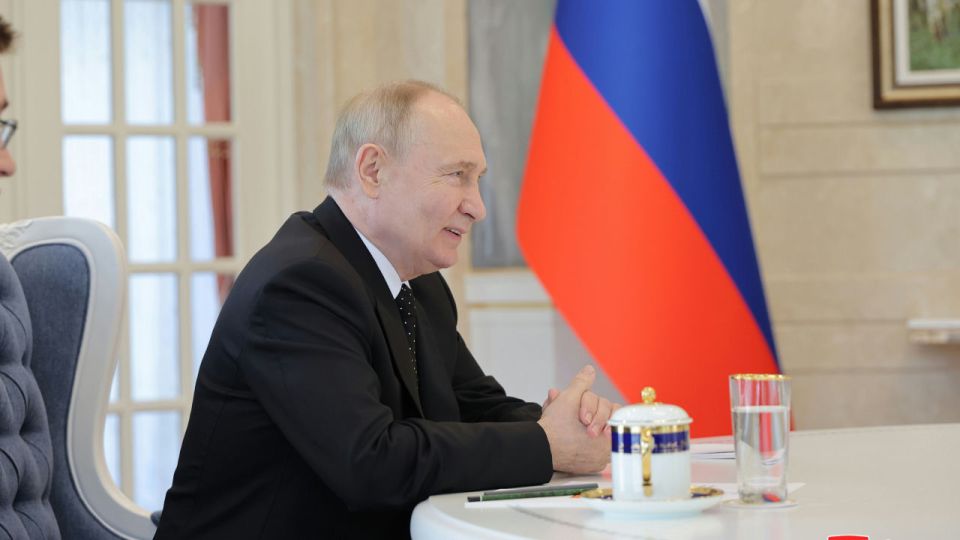July 3, 2024
SINGAPORE – Malaysia leads 35 countries in the percentage of respondents expressing favourable opinions of Russia, while Singapore saw an increase in those sharing the same views, according to a new Pew Research Centre survey.
Released on July 2, the nationally representative surveys looked into global perceptions on the Russian invasion in Ukraine.
In Malaysia, the number of people with a favourable view towards Russia leapt 10 percentage points from 2022 to 57 per cent, while 61 per cent of people now expressed confidence in President Vladimir Putin to “do the right thing regarding global affairs”, up 2 percentage points.
In Singapore, the percentage of respondents who held a favourable view of Russia saw a six point increase from 2022 to 34 per cent, while those surveyed who had the confidence that Mr Putin would do the right thing in world affairs inched up 1 percentage point to 37 per cent.
Still, overall, 60 per cent of Singapore respondents had little to no confidence in Mr Putin and 63 per cent of Singaporeans held an unfavourable view of Russia.
A majority of people in both countries also expressed “none” or “not too much” confidence in Ukrainian President Volodymyr Zelensky, as confidence in Mr Zelensky also dipped in countries across Europe, according to the Pew survey.
There is no basis for historical comparison in Singapore and Malaysia because Pew did not previously survey people in this region on Mr Zelensky.
The 40,000 respondents polled globally between January and May 2024 included around 1,000 people each in Singapore and Malaysia.
Other countries Pew Research Centre surveyed include India, Kenya, Germany and the United States.
The survey results underscore the continuing challenge Mr Zelensky faces in garnering international support for his country, particularly in Asia, as the bloody war of attrition between Russia and Ukraine grinds on with no end in sight.
Pew also found that within Nato-member states, the trans-Atlantic alliance continues to be seen largely favourably ahead of the July 9-11 Nato summit in Washington, which will mark the 75th anniversary of the bloc.
In the case of Singapore, Dr Ian Storey, a senior fellow at ISEAS – Yusof Ishak Institute, said that the fact that 60 per cent of people surveyed did not express confidence in Mr Putin indicated that “many people agree with the (Singapore) Government’s position that Russia’s invasion of Ukraine was an egregious violation of international law and the UN Charter, and that it has undermined the rules-based international order”.
For Malaysia, Dr Benjamin Loh, a visiting fellow at ISEAS – Yusof Ishak Institute, said that as a result of the ongoing conflict between Hamas and Israel in the Middle East, support for the US has dropped in the Muslim-majority country, while support might have concurrently risen for nations seen as opposing the US.
“Russia has always been seen as the one superpower that is sympathetic to Muslims around the world… They have painted themselves as this very, very important superpower for the Global South to a certain degree,” Dr Loh said.
“We are seeing a lot of increased support for other superpowers than America because of the fallout from the Oct 7 attacks,” he added, referring to the attacks that Hamas and other Palestinian armed groups launched on Israel in 2023.
The survey also found that a majority of the people in Singapore, Malaysia and Thailand did not have confidence in Mr Zelensky to do the right thing regarding world affairs.
In Singapore, 55 per cent of the respondents said they had little to no confidence that the Ukrainian President would do the right thing, while only 42 per cent of respondents said that they had a lot or some confidence in him.
In Thailand, the figures were 53 per cent little to no confidence and 40 per cent some or a lot of confidence, while in Malaysia the numbers stood at 61 per cent and 36 per cent respectively.
“Many people have… bought into the Kremlin’s narrative that Russia was provoked by Nato’s expansion and that Zelensky is a ‘puppet’ of the United States/Nato/the West,” said Dr Storey, noting that Mr Zelensky is often derided for his former career as a comedian, and often referred to as a clown.
Of the 10 Asia-Pacific countries that were part of the Pew Centre survey – which did not include China and Indonesia – Malaysia had the least confidence in Mr Zelensky.
Dr Loh said the nature of many attacks against Mr Zelensky in pro-Russia Malaysian circles, particularly in the early days of the war, were rather personal.
“A lot of the initial discussions was that he is a coward that’s biding his time, he’s just waiting to find an escape. They were (even) making informal bets about when he is going to eventually abandon everything and leave,” he added.
Dr Storey noted that in South Asia, as well as South-east Asia, both Mr Putin and Russia are generally viewed a lot more favourably than elsewhere in the world.
“This is because they are geographically far away from the conflict in Europe, and some states have always had pretty good relations with Russia.”

